detail profile dieter kirchlechner
Peran Yang Di Mainkan Dieter Kirchlechner
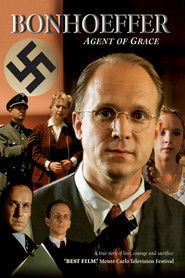 The story of Dietrich Bonhoeffer a...
The story of Dietrich Bonhoeffer a...Bonhoeffer: Agent of Grace 2000
The story of Dietrich Bonhoeffer, a German clergyman of great distinction, who actively opposed Hitler and the Nazis. His convictions cost him his life. What is a moral person to do in a time of savage immorality? That question tormented Dietrich Bonhoeffer, a German clergyman of great distinction who actively opposed Hitler and the Nazis. His convictions cost him his life. The Nazis hanged him on April 9, 1945, less than a month before the end of the war. Bonhoeffer's last years, his participation in the German resistance and his moral struggle are dramatized in this film. More than just a biographical portrait, Bonhoeffer: Agent of Grace sheds light on the little-known efforts of the German resistance. It brings to a wide audience the heroic rebellion of Bonhoeffer, a highly regarded Lutheran minister who could have kept his peace and saved his life on several occasions but instead paid the ultimate price for his beliefs.
 In this French crime film set...
In this French crime film set...K 1997
In this French crime film, set during the time of the Gulf War, an elderly German tourist is murdered in Paris by junk dealer Joseph Katz (Pinkas Braun), a friend of Paris detective Sam Bellamy (singer Patrick Bruel). Romantically involved with the victim's daughter Emma Guter (Isabella Ferrari), Bellamy covers up the crime he witnessed. Joseph then mysteriously vanishes, and Bellamy heads for Berlin where the victim's possessions are auctioned. After Bellamy finds the source of the well-hidden traffic in art stolen by Nazis from French Jews, he discovers a Nazi war criminal is blackmailing past associates. Incorporating background from journalist Hector Feliciano's Lost Museum, the film is adapted from Guy Konopnicki's novel, Pas de Kaddish pour Sylberstein (No Kaddish for Sylberstein).
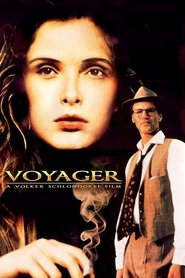 Walter Faber has survived a crash...
Walter Faber has survived a crash...Voyager 1991
Walter Faber has survived a crash with an airplane. His next trip is by ship. On board this ship he meets the enchanting Sabeth and they have a passionate love affair. Together they travel to her home in Greece, but the rational Faber doesn't know what fate has in mind for him for past doings.
 In May of 1983 a man turns 49...
In May of 1983 a man turns 49...A Love in Germany 1983
In May of 1983, a man turns 49 and, with his 17-year old son, journeys to the village in Baden that he left 40 years before. He wants to discover what happened then, the truth about an affair his mother had with a young Polish prisoner of war, how the authorities came to learn of it, the lovers' arrest, and the aftermath. While his son takes Polaroid photographs, he retraces the steps of his childhood and interviews those who should remember. The story is disclosed in flashbacks that focus on the lovers (Paulina and Stanislaus), on a jealous and conniving neighbor, and on Mayer, the local SS commander who wants to find a way out of inevitable consequences.
 A fairytale about the power of...
A fairytale about the power of...Salt & Gold 1983
A fairy-tale about the power of love. The old king Pravoslav feels it is time to entrust the rule over his kingdom to one of his three daughters - the one that loves him the most. The youngest, Maruška, fails her father's expectations about proving how deep her love him is. He misunderstands her and she is made to leave the castle. She faces many dangers on the way to her loved one, the Salt Prince.
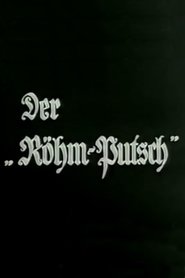 The documentary play reconstructs the backstory...
The documentary play reconstructs the backstory...Der Röhm-Putsch 1967
The documentary play reconstructs the backstory of the so-called “Röhm Putsch”, during which a few hundred people got killed, depicts the intrigues between the Reichswehr (German army) and the SA, and draws an image of the character of Röhm who, prior to Hitler’s accession to power, was his friend but later got pushed more and more into the background and eventually was disposed of. Röhm, captain during the 1st World War, organisational talent, daredevil, and one of the ‘discoverers’ of the corporal Hitler, was the central figure in the secret power struggles in the just established Hitler state. He demanded a ’second revolution’ and wanted to unite the million-man army of the SA and the Reichswehr under his leadership…

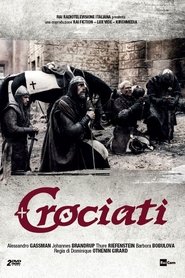 Towards the end of the eleventh...
Towards the end of the eleventh...
 The Riehl family is preparing for...
The Riehl family is preparing for...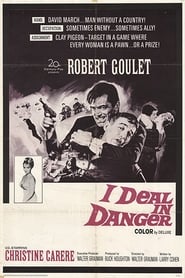 Compilation of the show Blue Light
Compilation of the show Blue Light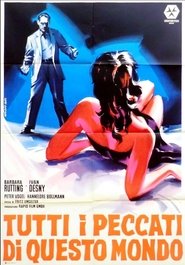 Regine a physician loses her lover...
Regine a physician loses her lover...